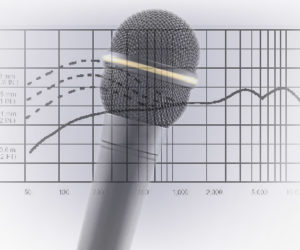I struggle with this.
Just last week, when the band started up, something sounded…odd.
I had a fleeting, low-level thought of “something sounds weird” but it was buried way in the back of my mind, like the impulse that tells you to activate the turn signal when you’re driving – you don’t even notice it because you’re focused on something else.
About five minutes later, I glanced at my main EQ and discovered a 2 dB cut at 10 kHz. I popped it out and everything fell into place.
Now I can’t tell you how that filter got inserted between sound check and the show (I certainly didn’t do it), but the point is that my in-the-moment intuitive response knew something was amiss almost instantly, while my thinking, reasoning, rational engineer brain took another five minutes to corroborate it. If I’d had the self-awareness to bring that instinctual reaction to the forefront of my mind – and to listen to it – I would have found the problem much sooner.
Experience & Intuition
Perhaps I’m contradicting myself. After all, one of my favorite topics in audio is the fallibility of human perception and how we should be very wary of what we think we’re hearing (i.e., The Judgment Triangle, LSI February 2016). You could certainly say I was brought up as an audio skeptic: one of my dearest mentors is Ethan Winer, an expert who has spent decades dismantling commonly-held audio misconceptions.
Ethan’s work chronicles that examination of things that we’ve all been taught should really matter – dither, jitter, sampling rate, phase shift, loudspeaker isolation – and there’s a good chance you’ve seen the video of his “AES Audio Myths Workshop.”
With a mentor like that, it’s little wonder that I’m particularly hard to convince when extraordinary claims are made.
But I’m not talking about clinging stubbornly to the marketing claims of some new miracle product that, if true, would defy the laws of physics. I’m simply suggesting that if we’re truly experts at what we do, our first instincts might have some validity.
After all, we’ve spent our entire careers focusing intently on the very minutia of how music sounds, so it’s reasonable to believe that we might be more sensitive, on a base level, to sonic details than someone without that experience.
Gladwell’s book seems to support that logic.
So maybe a lifetime of listening critically to pop songs brings a bit more validity to my initial positive reaction to that Cher Lloyd tune. And maybe the next time my subconscious brain notices a problem with my mix, I’ll pay closer attention.




